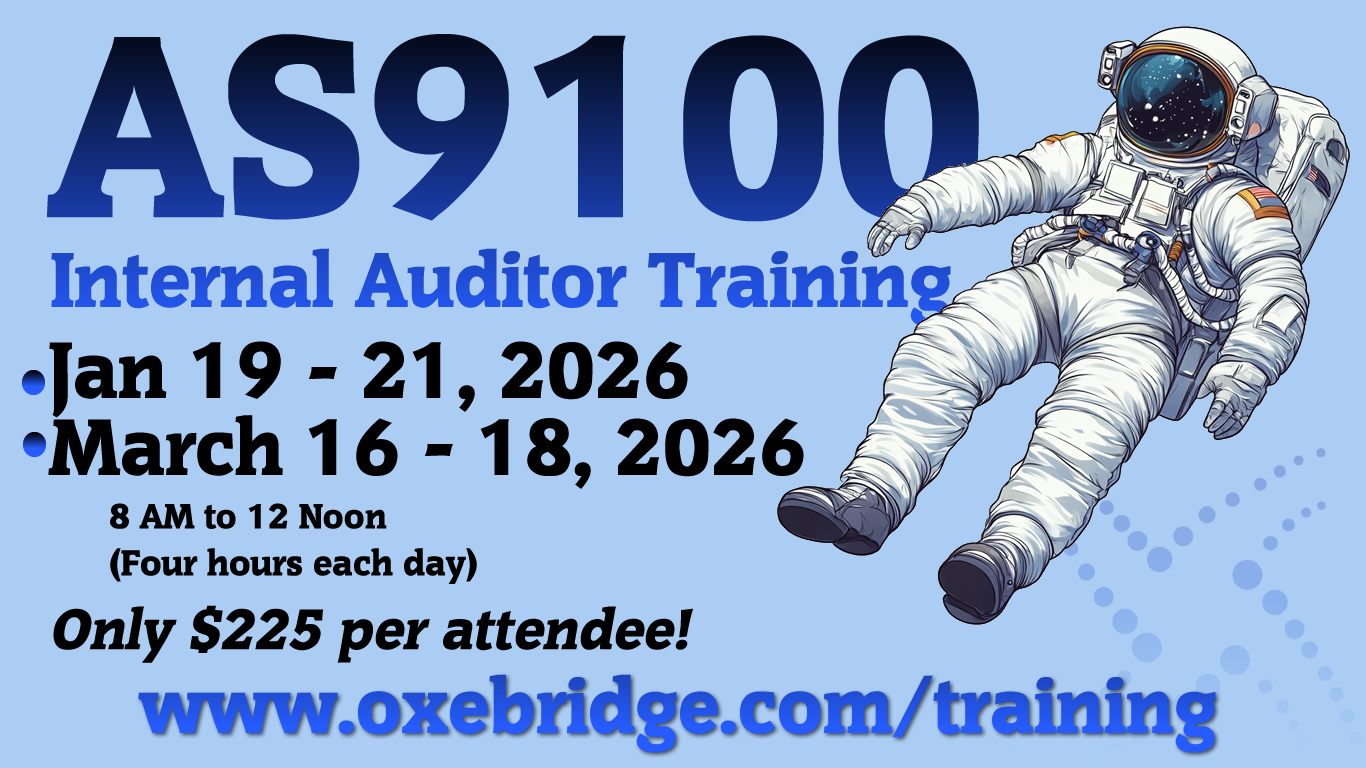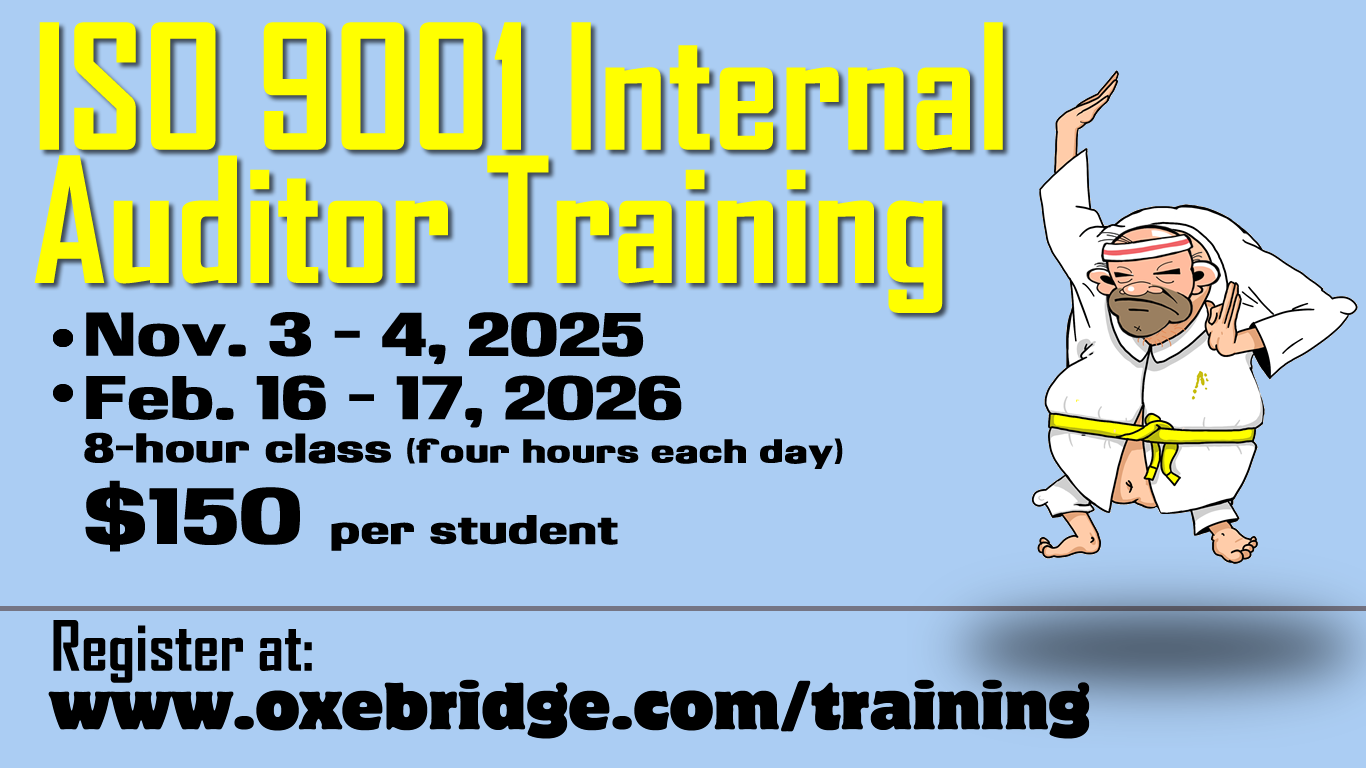According to a source close to the IAQG, the next revision of AS9100, to be called IA9100, is on hold. The standard was expected to be released about one month after the update of ISO 9001, which is expected to be published in December 2025, but it is now on hold “indefinitely” as internal upheaval at IAQG unfolds.
Eric Jefferies, of the aerospace company Textron, took over as IAQG president from outgoing head Andy Maher in November of 2023. It is now reported that Jefferies has shifted the development duties of AS9100 away from the usual development team, which comprised about 100 international delegates, and handed that over to a team of eight individuals reporting to him and the “Executive Board.”
Tossed aside are long-time AS9100 authors Buddy Cressionnie, Tim Lee and Alan Daniels.
ISO Takes Similar Action
The move follows similar moves by ISO, which has shifted the development of ISO 9001 away from TC 176 and nearly entirely into the hands of BSI, the British Standards Institution. Two sources close to ISO report that BSI has been given the role because of its willingness to comply with the personal mandates of ISO Secretary-General Sergio Mujica and to give more control to Mujica’s lackey, Nigel Croft.
TC 176 has seen the departure of key participants, such as Lorri Hunt, over the move. For the new draft of ISO 9001, BSI has ignored the processing of international comments and simply pushed ahead with the next draft, violating ISO procedures. It has shifted power to a single consultant from Trinidad & Tobago, Devindra Chattergoon. Trinidad has only about eighty ISO 9001 certificates out of over 1.1 million worldwide, but Chattergoon has been granted additional authority due to his willingness to obey Mujica and Croft. It is not clear if Chattergoon has any actual experience with ISO 9001.
If the sources are correct, this marks a dramatic departure from the core promise of both ISO and IAQG that their standards are developed by “consensus” of formally-nominated delegate committees. Instead, it now appears the content of standards is being developed purely with the interests of the governing publishing companies—ISO and SAE—without regard to whether the standards can later be implemented or audited.
The direction of the AS9100 standard was problematic, however, so it remains to be seen if Jefferies intended to course-correct or if his power grab will result in the future IA9100 standard being worse rather than better.
Plans remain to keep a controversial new clause on “cybersecurity” in the IA9100 standard, likely to force many third- and fourth-tier companies to drop the standard entirely due to potential costs.
Boeing vs. Raytheon
The internal squabbles within SAE and IAQG have already resulted in a very public schism. Raytheon and a few of its allies successfully created an alternative standard to AS9100, called AS13100, branded as an aerospace QMS standard for “engines and systems” manufacturers. However, through its new company RTX and partners like Pratt Whitney, Raytheon is flowing down AS13100 to the entire supply chain, regardless of whether they provide actual hardware that ends up in aircraft engines or related “systems.” AS13100 presents expensive obstacles to any company faced with it, as it is based on many costly practices originally implemented in the highly regulated automotive industry.
As a result, SAE and IAQG have split into two competing QMS standards: AS9100, developed largely by Boeing, and Raytheon’s AS13100. A few small Oxebridge clients, with less than ten employees each, have now faced PO requirements to implement both, while the aerospace primes simultaneously demand “cost reduction.”
The current path indicated by Jefferies suggests a complete lack of concern over the supply chain, and more of a focus on legal liability, as aerospace primes simply flow down increasing numbers of requirements — such as AS9100, AS13100, ASQR-01, NIST 800, ISO 27001 and more — without regard for the costs of implementing and maintaining such systems.
Standards as Barriers to Trade
The World Trade Organization (WTO) had published its Technical Barriers to Trade (TBT) regulations to prevent such actions, but recently admitted to Oxebridge that it has no ability to enforce them. Publishers like ISO and SAE are now pushing the limits of what they can impose on industries without any concern for whether such actions amount to trade barriers.
World governments could stop the practice by ensuring the non-profit organizations behind such moves are held accountable under tax laws, but have taken a hands-off approach to standards developers. In the US, government representatives and regulators have little understanding of the conflicts of interest and potential fraud, and instead outsource industry controls to companies like ISO and SAE under the guise of saving taxpayers’ money.
By outsourcing standards to a handful of private companies, the WTO regulations lack all teeth, since it is incumbent on countries, not companies, to comply with the TBT decree. WTO lacks legal standing to take action against private companies like ISO, IAQG, or SAE.







